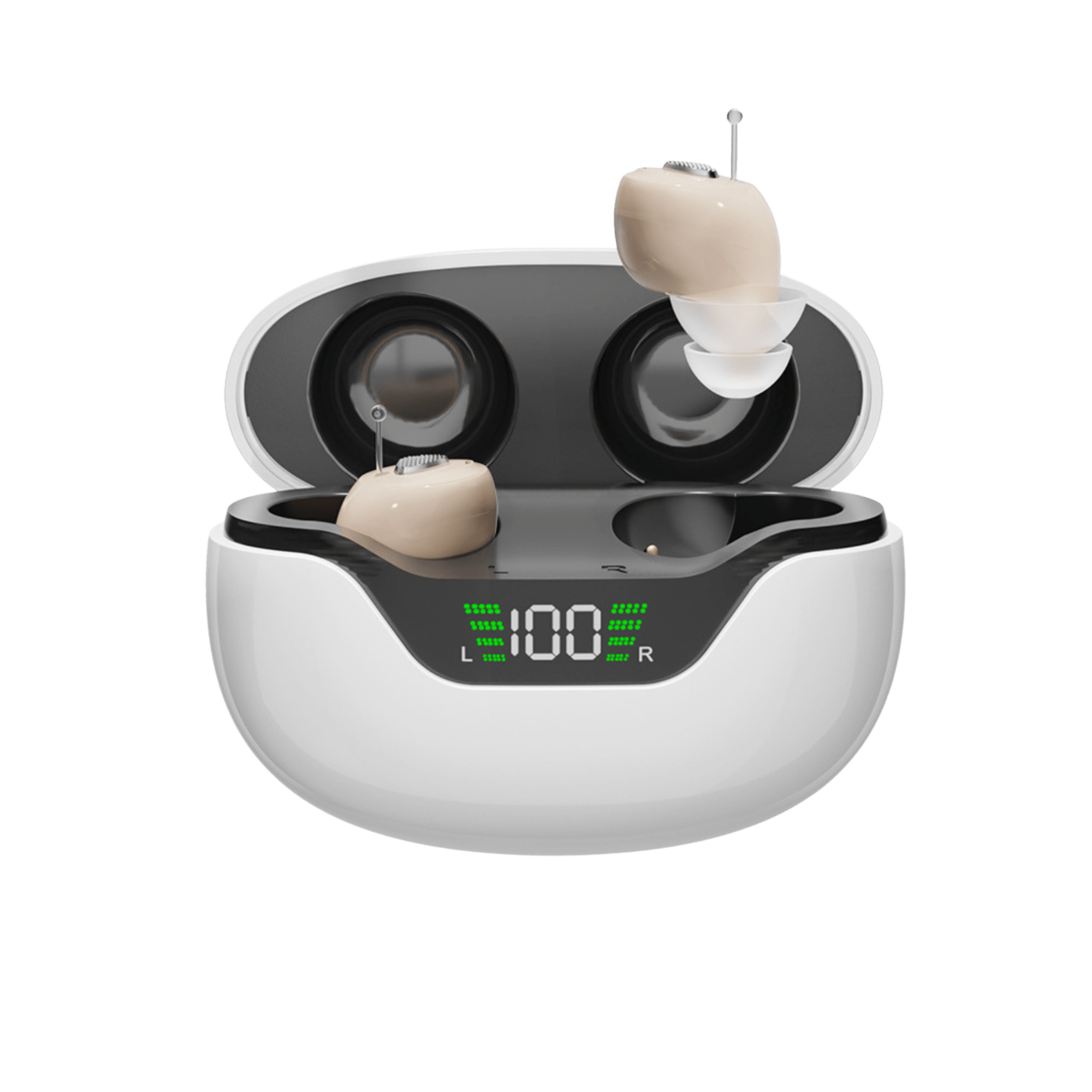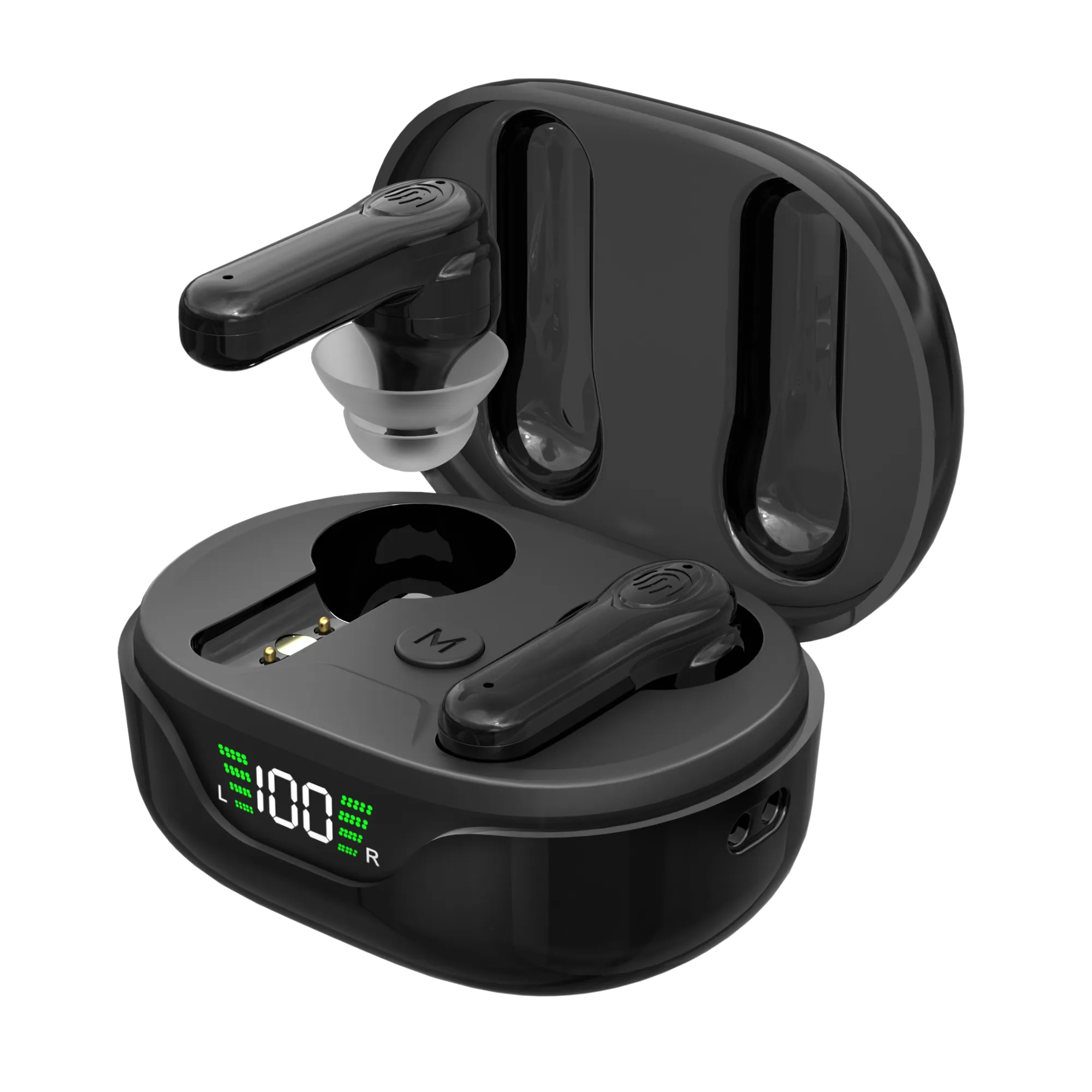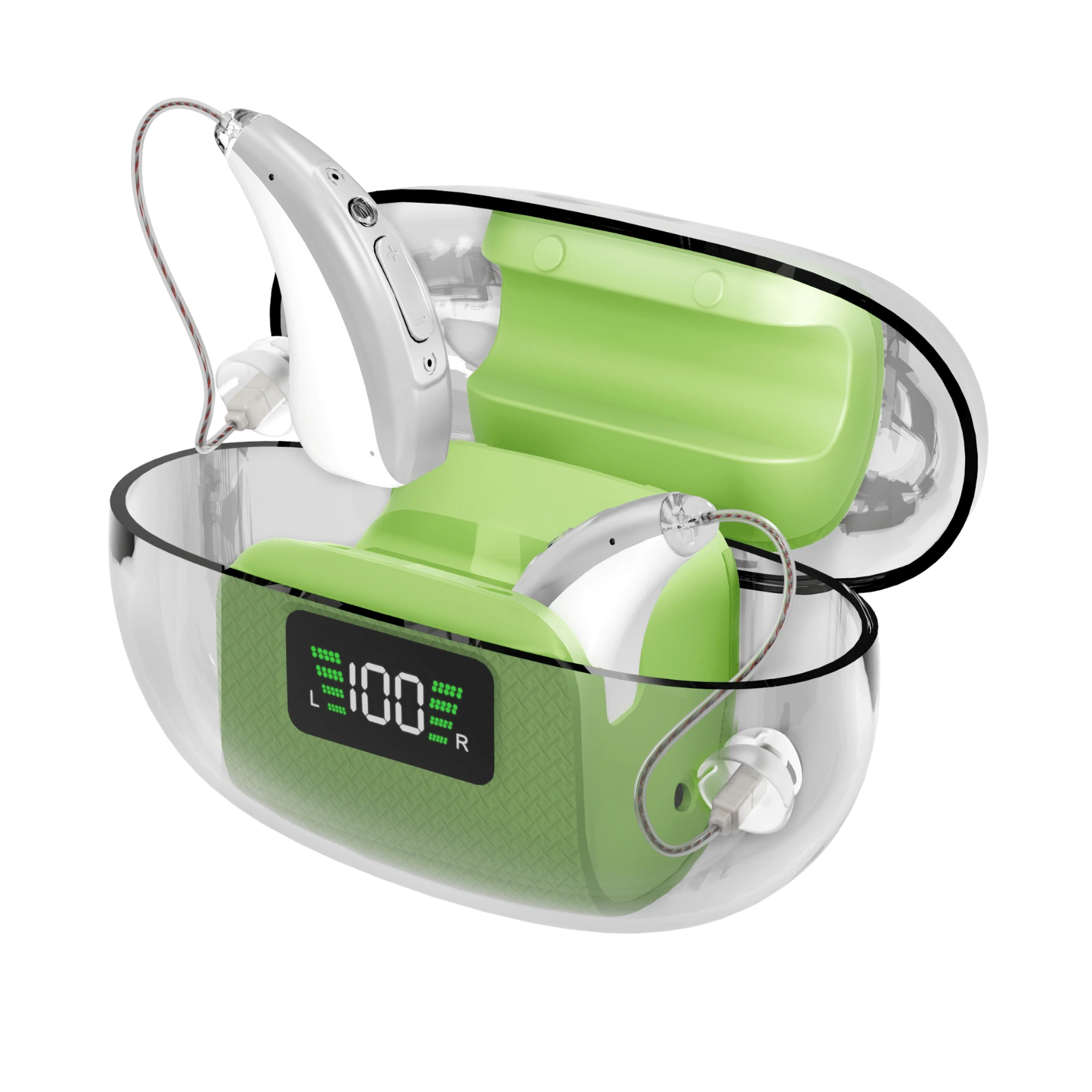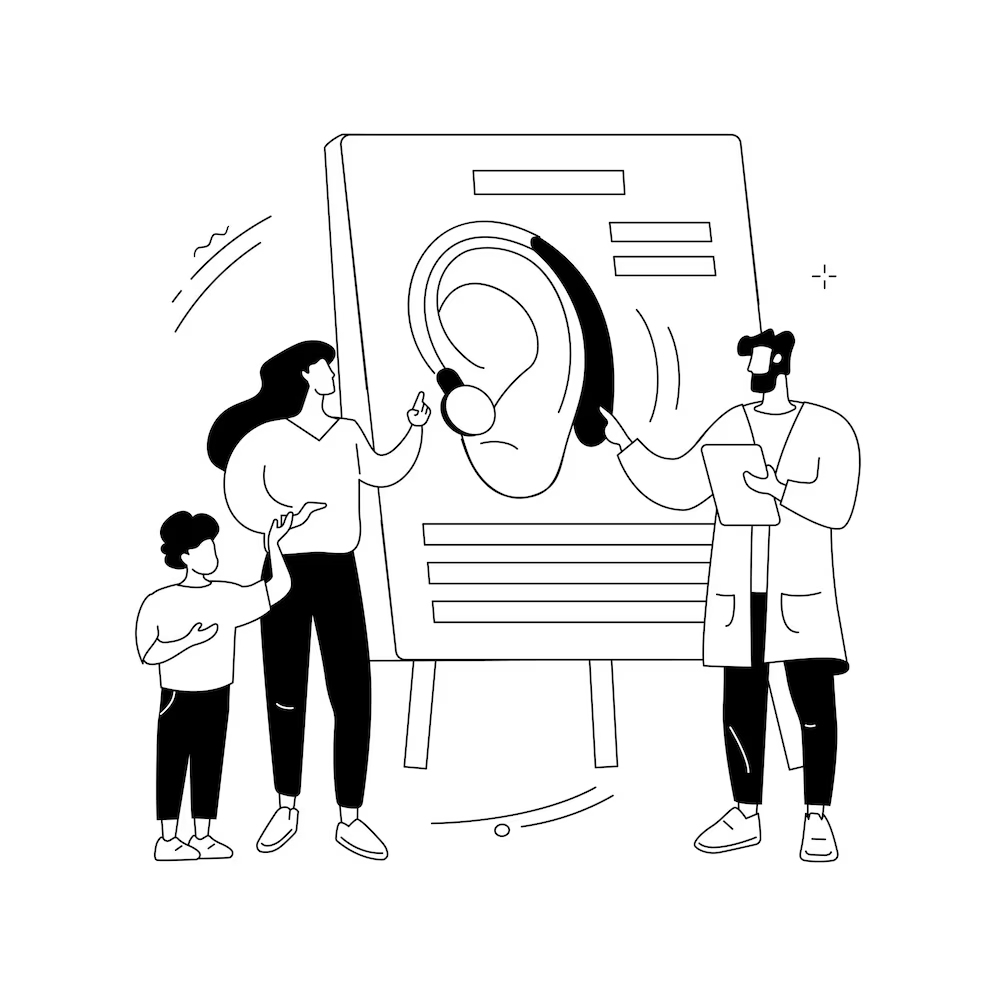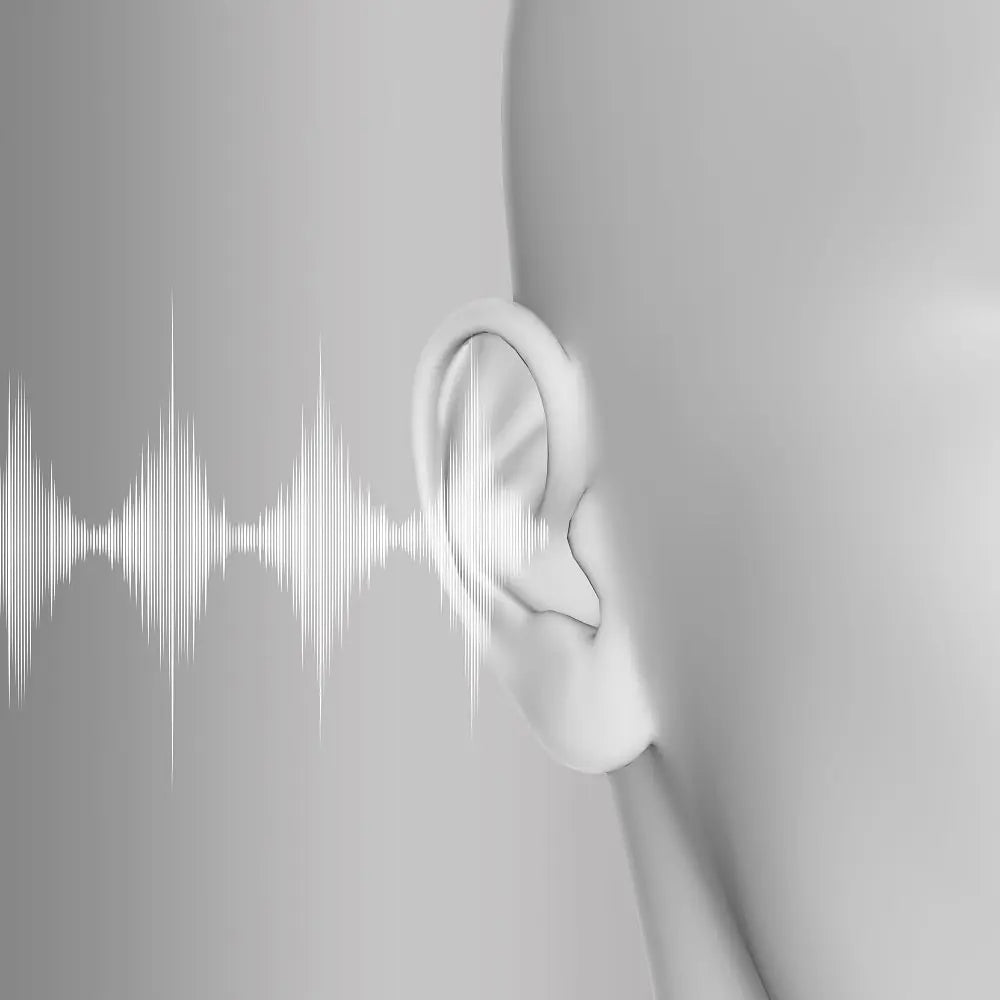Introduction
Loss of hearing is a common problem that affects millions of people all over the world. Hearing aids, which have been made possible by advances in technology, can make a big difference in the quality of life for people who have trouble hearing. Hearing aids are a type of durable medical equipment (DME). They have different features and perks that help people get back to being able to talk and do daily things. In this piece, we'll talk about what "durable medical equipment" means in the context of hearing aids. We'll also talk about how long hearing aids last, what benefits they offer, and what users should keep in mind.
What does DME, or durable medical equipment, mean?
Durable medical equipment (DME) is any medical device or piece of equipment that a doctor or nurse gives to a patient to help them deal with their illness or disability. These tools are made for long-term use and are made to be used over and over again without getting much worse. DME covers a wide range of things, such as wheelchairs, crutches, oxygen equipment, and, yes, hearing aids.
Hearing aids are long-lasting medical devices
Hearing aids are small electronic devices that help people with hearing loss hear sounds better by making them louder. They are usually called DME because they are long-lasting devices made to help and improve hearing over a long period of time. But it's important to keep in mind that hearing aids may or may not be considered DME depending on the rules and policies in place in a given area.
How long hearing aids last
Durability is an important part of DME. Hearing aids are made to be used every day, and they are usually made of strong materials like plastic, rubber, and metal. But you have to be careful with them if you want them to last a long time. Manufacturers give instructions on how to clean and take care of devices so that users can keep them safe from wetness, dust, and physical damage.
Hearing aids often come with protective features like waterproof or water-resistant covers to make them last longer. With these protections, users can feel safe wearing their devices in a variety of situations, like when they are outside or when it is hot. Also, some hearing aids have coats that prevent earwax from building up. This makes the device work better and last longer.
Hearing aids as DME: Pros and Cons
Better hearing: The main benefit of hearing aids is that they can make things louder and help people hear better. Hearing aids help people with hearing loss hear speech and other sounds around them better. This lets them take part in talks, enjoy social interactions, and get involved in the world around them.
Improved Quality of Life: Hearing loss can have a big effect on a person's general health, causing them to feel alone, frustrated, and less able to think clearly. Hearing aids help with these problems because they make communication better, which is good for relationships, work success, and mental health. Users often say that hearing aids have made a big difference in their quality of life.
Customization and advanced features: Modern hearing aids come with a wide range of features and ways to change them to meet the needs of each person. They can be designed to work with different types and levels of hearing loss, so they can be used to make sounds louder and improve the way sounds are made. Some hearing aids even have Bluetooth built in, which lets people stream sound straight from their phones or other devices.
Tinnitus Treatment: People with hearing loss often have tinnitus, which is a constant ringing or buzzing sound in the ears. Many hearing aids now have tinnitus management features, such as sound therapy choices, to help relieve tinnitus and lessen its effect on everyday life.
Thoughts for People Who Use Hearing Aids
Professional Evaluation: If you think you might be losing your hearing, you should see a qualified audiologist or other hearing healthcare professional for a full evaluation. They can figure out how bad your hearing loss is, suggest the right hearing aids, and help you with changes and support as needed.
Proper Maintenance: Hearing aids need to be cleaned and maintained regularly to last as long as possible and work as well as possible. Follow the instructions from the maker for how to clean and store the devices. Don't let them get too wet, too hot, or too much direct sunlight, as these things can hurt the parts inside. Also, make regular appointments with your audiologist to have your hearing aids cleaned and checked by a professional.
Most hearing aids use either throwaway batteries or batteries that can be charged. If your device uses batteries that need to be thrown away, make sure you have extras on hand and change them when you need to. Follow the instructions for charging hearing aids that can be recharged, and don't overcharge or drain the batteries fully. It's best to set up a regular time to charge the batteries so that you can use them without interruption.
Proper Insertion and Removal: It is very important to learn the right way to put in and take out your hearing aids. If you don't handle the gadget right, you could accidentally break it or lose it. Your audiologist can tell you how to handle the hearing aids and put them in your ears correctly.
Adjustments and follow-ups: Hearing aids may need to be changed over time as your hearing changes or as you decide what you like best. It's important to talk to your audiologist about any problems or worries you have. They can make any necessary changes to the way your hearing aids work, take care of them, and give you ongoing help to make sure they continue to meet your needs.
Conclusion
Hearing aids are an important part of making the lives of people with hearing loss better because they help them regain the ability to talk and do daily tasks. As durable medical equipment (DME), hearing aids are made to last for a long time and provide their users with many benefits. People can get the most out of their hearing aids by knowing how important it is to take care of them, get them checked out regularly, and follow the advice of hearing healthcare pros. If you think you might have hearing loss, see a professional to find out if hearing aids would help you. Remember that with the right care and regular help, hearing aids can make a big difference in your ability to hear and your general quality of life.
Loss of hearing is a common problem that affects millions of people all over the world. Hearing aids, which have been made possible by advances in technology, can make a big difference in the quality of life for people who have trouble hearing. Hearing aids are a type of durable medical equipment (DME). They have different features and perks that help people get back to being able to talk and do daily things. In this piece, we'll talk about what "durable medical equipment" means in the context of hearing aids. We'll also talk about how long hearing aids last, what benefits they offer, and what users should keep in mind.
What does DME, or durable medical equipment, mean?
Durable medical equipment (DME) is any medical device or piece of equipment that a doctor or nurse gives to a patient to help them deal with their illness or disability. These tools are made for long-term use and are made to be used over and over again without getting much worse. DME covers a wide range of things, such as wheelchairs, crutches, oxygen equipment, and, yes, hearing aids.
Hearing aids are long-lasting medical devices
Hearing aids are small electronic devices that help people with hearing loss hear sounds better by making them louder. They are usually called DME because they are long-lasting devices made to help and improve hearing over a long period of time. But it's important to keep in mind that hearing aids may or may not be considered DME depending on the rules and policies in place in a given area.
How long hearing aids last
Durability is an important part of DME. Hearing aids are made to be used every day, and they are usually made of strong materials like plastic, rubber, and metal. But you have to be careful with them if you want them to last a long time. Manufacturers give instructions on how to clean and take care of devices so that users can keep them safe from wetness, dust, and physical damage.
Hearing aids often come with protective features like waterproof or water-resistant covers to make them last longer. With these protections, users can feel safe wearing their devices in a variety of situations, like when they are outside or when it is hot. Also, some hearing aids have coats that prevent earwax from building up. This makes the device work better and last longer.
Hearing aids as DME: Pros and Cons
Better hearing: The main benefit of hearing aids is that they can make things louder and help people hear better. Hearing aids help people with hearing loss hear speech and other sounds around them better. This lets them take part in talks, enjoy social interactions, and get involved in the world around them.
Improved Quality of Life: Hearing loss can have a big effect on a person's general health, causing them to feel alone, frustrated, and less able to think clearly. Hearing aids help with these problems because they make communication better, which is good for relationships, work success, and mental health. Users often say that hearing aids have made a big difference in their quality of life.
Customization and advanced features: Modern hearing aids come with a wide range of features and ways to change them to meet the needs of each person. They can be designed to work with different types and levels of hearing loss, so they can be used to make sounds louder and improve the way sounds are made. Some hearing aids even have Bluetooth built in, which lets people stream sound straight from their phones or other devices.
Tinnitus Treatment: People with hearing loss often have tinnitus, which is a constant ringing or buzzing sound in the ears. Many hearing aids now have tinnitus management features, such as sound therapy choices, to help relieve tinnitus and lessen its effect on everyday life.
Thoughts for People Who Use Hearing Aids
Professional Evaluation: If you think you might be losing your hearing, you should see a qualified audiologist or other hearing healthcare professional for a full evaluation. They can figure out how bad your hearing loss is, suggest the right hearing aids, and help you with changes and support as needed.
Proper Maintenance: Hearing aids need to be cleaned and maintained regularly to last as long as possible and work as well as possible. Follow the instructions from the maker for how to clean and store the devices. Don't let them get too wet, too hot, or too much direct sunlight, as these things can hurt the parts inside. Also, make regular appointments with your audiologist to have your hearing aids cleaned and checked by a professional.
Most hearing aids use either throwaway batteries or batteries that can be charged. If your device uses batteries that need to be thrown away, make sure you have extras on hand and change them when you need to. Follow the instructions for charging hearing aids that can be recharged, and don't overcharge or drain the batteries fully. It's best to set up a regular time to charge the batteries so that you can use them without interruption.
Proper Insertion and Removal: It is very important to learn the right way to put in and take out your hearing aids. If you don't handle the gadget right, you could accidentally break it or lose it. Your audiologist can tell you how to handle the hearing aids and put them in your ears correctly.
Adjustments and follow-ups: Hearing aids may need to be changed over time as your hearing changes or as you decide what you like best. It's important to talk to your audiologist about any problems or worries you have. They can make any necessary changes to the way your hearing aids work, take care of them, and give you ongoing help to make sure they continue to meet your needs.
Conclusion
Hearing aids are an important part of making the lives of people with hearing loss better because they help them regain the ability to talk and do daily tasks. As durable medical equipment (DME), hearing aids are made to last for a long time and provide their users with many benefits. People can get the most out of their hearing aids by knowing how important it is to take care of them, get them checked out regularly, and follow the advice of hearing healthcare pros. If you think you might have hearing loss, see a professional to find out if hearing aids would help you. Remember that with the right care and regular help, hearing aids can make a big difference in your ability to hear and your general quality of life.

